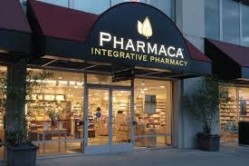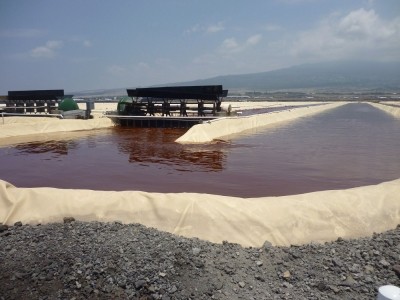Special Edition: View from the aisles: The retailers' perspective
NYAG affair may ultimately serve to reinforce smaller retailers' quality message, execs say

One of those retailers is Pharmaca Integrative Pharmacy, a 30-store chain based in Boulder, CO with locations in California, Colorado, New Mexico, Oregon and Washington. Don Summerfield, VP of integrative medicine for the chain, said that the chain is unique among retailers in that it features a scientific advisory board, which includes longtime herbal industry advocate Dr Tieraona Low Dog, ND, a recent recipient of the Herbal Insight Award from the American Herbal Products Association. Dr Low Dog also serves as the chair of USP’s Dietary Supplements Admission Evaluation Subcommittee.
“The Scientific Advisory Board and myself developed a dietary supplement quality assurance program with Dr Low Dog providing input and resources from her connection with USP,” Summerfield told NutraIngredients-USA.
Quality assurance program
“We have a detailed quality assurance questionnaire that goes through all the different iterations of what we would be looking for from a manufacturer of vitamins, minerals, botanicals or non botanical products. All of that links back to the FDA GMP guidelines,” he said.
Summerfield said that getting products on Pharmaca’s shelves is not easy matter, and in his mind stands as a mark of quality in and of itself. The company delves deeply into a brand holder’s operations to make sure that a quality product will be the result, he said.
“The questionnaire goes into depth on a manufacturer’s standard operation procedures. It is a form that every vendor has to fill out. If a vendor can answer every question in full, they become a qualified Pharmaca vendor with recertification every three years.” he said.
“If they leave some non critical questions blank they can be provisionally certified and must be recertified the next year. I’m thinking of some smaller manufacturers here, who might be still working to get all of their standard operating procedures into final form on paper. They might be a smaller herbal manufacturer that’s been in business for 25 years, and are working toward full GMP compliance and are at 85% with the other 15% being paperwork related,” Summerfield said.
“If they miss any of the critical questions, they are just not approved, period. It’s the most stringent application process in the dietary supplement business,” he said.
On site inspections
Summerfield said Pharmaca’s commitment to supplement quality goes beyond just the stringent questionnaire process. The company does it’s own manufacturing facility tours, which he said the company believes is unique in the industry.
NIU's Retailer Forum
Experts from Vitamin Cottage/Natural Grocers, Mustard Seed Market and Cafe, and the Natural Products Association will discuss the opportunities and challenges in the dietary supplement sector at the NutraIngredients-USA Retailer Forum. For more information and to register, please click HERE.
“I have been to more than 100 manufacturing facilities in the US, Europe and Asia. I’m going through their documentation on site, I’m looking at their lab results and I’m looking at their testing equipment to see that it is properly maintained and recalibrated. And we don’t visit these facilities just once. Some of these I’ve visited five or six times as they have grown throughout the years,” he said.
That quality message is something that reverberates with the chain’s customers who have come to rely on the store’s personnel for information about their supplement buying decisions, Summerfield said. If it’s on the shelves at Pharmaca the store’s customers believe it can be trusted, he said. For that reason, it might not be the most representative population to gauge the effect the NYAG’s actions and the fallout those have had. And Summerfield said it seems as if the more informed consumer, like Pharmaca’s clientele, have taken the message that this affair was mostly about those named retailers.
“When something hits the news like this I ask my people in the stores what they are hearing on the store level. Things like the issues with fish oil and prostate cancer or the assertions that multivitamins are completely useless. With issues like those we did see an impact, and I give our store personnel talking points to communicate to customers. The NYAG issue has had completely no effect on our stores. No customers have asked sales people about it and there has been no dip in sales,” he said.
Quality on a single store level
Jeff Wright, owner of Wright’s Nutrients, a health food store in Port Richey, FL, is in a different position than Summerfield. Rather than communicate the quality and safety assurance message to the consumer though a cadre of store personnel, Wright, who is also past president of the Natural Products Association, wears both hats. He can tell consumers with confidence about the quality of a supplement and the integrity of the company that makes it because he’s the one that approved it in the first place.
“We have a process when a new vendor comes in or when we are recertifying a current vendor where we have 15 or 20 questions we ask them. I want to know if they’ve had a GMP inspection by the FDA and if they had any 483s from that and if so, what they did to correct them,” Wright said.
“If they are not forthcoming on some of those things or they don’t even know what a 483 is that sends up some red flags,” he said. “I ask them about if they use third party labs and I ask them if they tested those labs by sending in a tainted sample to see if they caught it.”
Wright said he has had a few questions from his customers about the NYAG affair. But in the main, he said his relationship with his customers is more influential than what they might hear in the media.
“Generally I will do that more one on one with customers than addressing it n a newsletter. In a newsletter you could really be opening up a can of worms because not everybody’s going to have a question about something like the AG affair. A large part of our success is the reputation of the store. We have strong guidelines for our staff on sticking to structure/function claims, not making health claims and not using any literature that makes health claims that cites unsubstantiated research,” he said.
“I’ve had a few questions about the NYAG thing, but mostly what I’ve heard from customers is that they know how we vet our products, they trust what we are doing and they know we stand behind the products,” Wright said.

















